Notebook
-
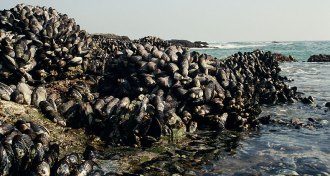 Chemistry
ChemistryMussels use chemical primer to cement themselves to rocks
Gluing proteins contain their own built-in primer.
By Beth Mole -
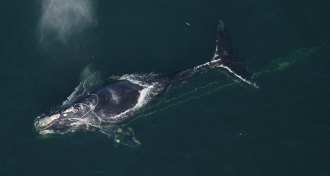 Animals
AnimalsSimple change to fishing nets could save endangered whales’ lives
Making industrial fishing ropes weaker would reduce humpback and right whale bycatch by almost three-quarters
-
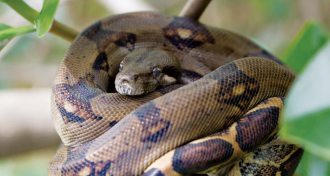 Animals
AnimalsBoa suffocation is merely myth
Boa constrictors don’t suffocate prey; they block blood flow, says a new study that shatters a common myth about the snakes.
By Susan Milius -
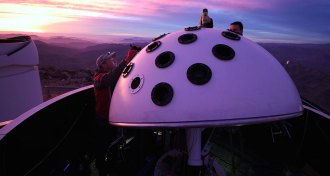 Astronomy
Astronomy24-eyed telescope takes full-sky movies every night
The Evryscope, a 24-telescope array in northern Chile, will nearly continuously watch for changes in the southern sky.
-
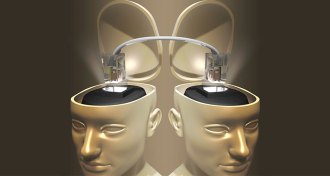 Neuroscience
NeuroscienceClaim of memory transfer made 50 years ago
Scientist’s claims of transferred memories were more fiction than fact.
-
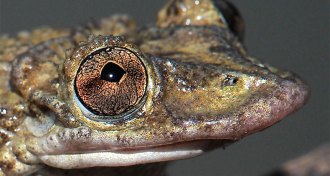 Animals
AnimalsFirst known venomous frogs stab with toxin-dripping lip spikes
Two Brazilian frogs jab foes with venoms more deadly than pit vipers'.
By Susan Milius -
 Climate
ClimateIceless Arctic summers now expected by 2050s
The Arctic Ocean will have its first ice-free summer in the 2050s, nine years earlier than previously forecast, according to improved simulations.
-
 Health & Medicine
Health & MedicineThe five basic tastes have sixth sibling: oleogustus
Scientists dub the taste of fat oleogustus.
-
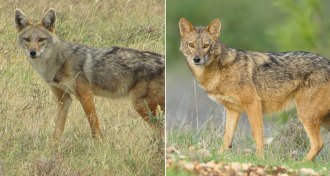 Genetics
GeneticsWolves in jackals’ clothing
Africa’s golden jackals are really a species of wolf and deserve a name change, DNA evidence indicates.
-
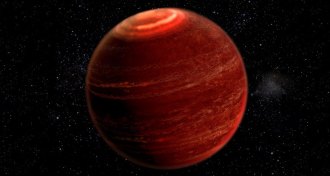 Astronomy
AstronomyDistant star has northern lights–like display
A dim star shows signs of auroral lights, the first detected on a body that’s not a planet or moon.
-
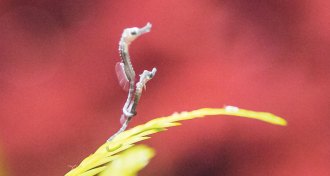 Animals
AnimalsToddler seahorses are bumbling and adorable
Rice-grain-sized youngsters can’t yet get a grasp with their tails.
By Susan Milius -
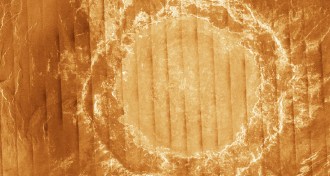 Planetary Science
Planetary ScienceFirst craters on Mars spotted 50 years ago
Fifty years ago, Mariner 4 revealed that the Red Planet was peppered with craters. Now we know pockmarks are common on many other planets and moons, too.